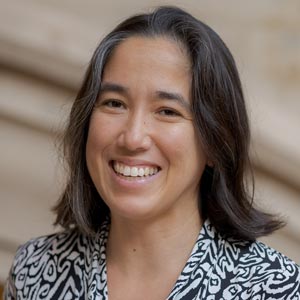Point defects in crystals are the solid state analog to trapped ions. Thus these “quantum defects,” which can be integrated into solid-state devices, have gained popularity as quantum sensors and qubit candidates for scalable quantum networks.
In this talk, I will introduce some of the basic quantum defect properties desirable for quantum technologies. I will highlight my own group’s efforts at understanding and controlling the properties of defects in diamond including (1) synthesis, frequency and emission control of deep-level vacancy complexes and (2) properties of shallow-level donors in ZnO, including single donors and intentionally synthesized donors in ZnO.

Kai-Mei Fu is the Virginia and Prentice Bloedel Professor of Physics and Electrical and Computer Engineering at the University of Washington and holds a dual appointment with the Pacific Northwest National Laboratory. Kai-Mei received their Ph.D. in Applied Physics in 2007 from Stanford University. Their research focuses on the synthesis, characterization and control of optically active quantum defects in crystals, with applications in quantum networks and sensing. At UW, Kai-Mei is the Director of UW’s NSF National Research Training Program: Accelerating Quantum-Enabled Technologies and the co-chair of UW’s interdisciplinary QuantumX Steering Committee. They serve as the Deputy Director of the Department of Energy National Quantum Initiative (NQI) Co-design Center for Quantum Advantage. In their free time, Kai-Mei enjoys spending time with their family outdoors in the beautiful Pacific Northwest.